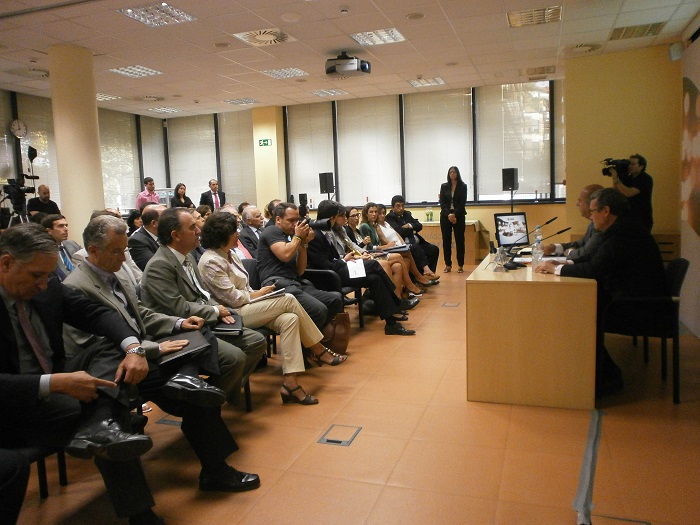Energy efficiency in Spain has improved by 15 points in the period from 2000 to 2012 and the rate of emission intensity of greenhouse gases has declined by 20 points, according to the Observatory of Repsol Energy Foundation. This was stated by the vice president of the Repsol Foundation, César Gallo Erena, and Manuel Bravo Lopez, director of energy and environment, during the presentation of the Repsol Foundation Energy Efficiency Report held in Madrid (Spain) last week.
Gallo believes that this improvement is reflected in the positive development of the two sectors that require more energy: transportation and industrial. In addition, between 2011 and 2012, the Repsol Energy Efficiency Index has regained its improvement trend after showing a reduction in efficiency in 2010 due to the economic crisis.
Also, Gallo said that "fossil fuels still account for over 80 % of world’s primary energy demand and will continue to do so in the coming years." However, the differences in economic and energy growth between developed and emerging countries still remain. Thus, while developing countries have experienced strong growth in energy demand, the OECD countries reduce their energy demand, according to the directive on energy efficiency 2012/27/UE, passed last year, which requires member states to set energy efficiency targets for 2020.

However, despite these improvements, the vice president of the Repsol Foundation has indicated that the target set by the European Union is "virtually impossible for Spain to meet in this short period of time," although numerous measures to support it have been taken, especially in the residential and services sectors.
In this sense, the study incorporates projections on the evolution of energy consumption in Spain and from the Repsol Energy Efficiency indexes and Emissions Intensity until 2025. For this prediction, three growth scenarios have been developed (low, base and high) taking into account the implementation of economic policies adopted. This projection indicates that both indexes would improve slightly in a base scenario, so it is necessary to promote new initiatives to get more positive results. These are mainly associated with carbon reduction and the increased weight of renewable energies in the mix of electricity generation.
Moreover, unlike in Europe, the United States gas has replaced coal given that in 2011 the price of the former was reduced by up to 55 %, due to a significant increase in the production of unconventional gas. In this sense, Gallo has concluded that "improving energy efficiency is the only thing we have in Spain to compete with this industry, which has the same technological and work level as ours."



